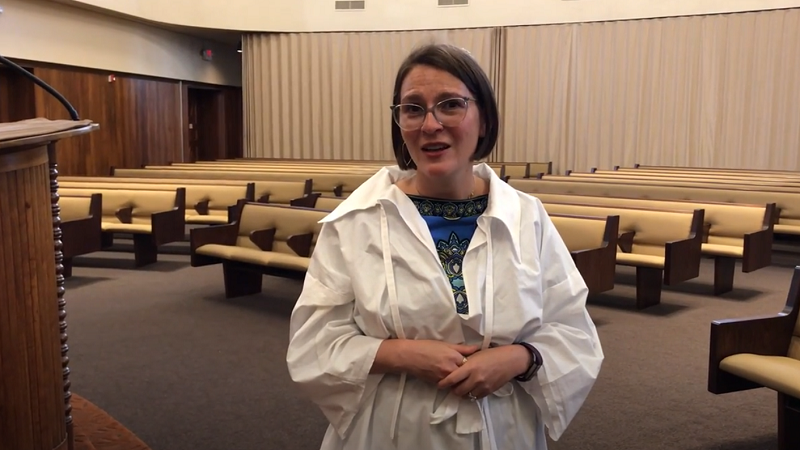It has been many years since I have fasted for the full Yom Kippur holiday. The last time was Yom Kippur 2012. This year is the first time since then that I am neither pregnant nor nursing, so I had the obligation to return to the traditional fast. It kind of reminded me of when I was 12 and fasted for the first time. I had dry mouth and a headache, and it was hard to concentrate, especially while leading long services and standing for much of the morning. By mid-afternoon I wasn’t sure I was going to make it through the fast. I had two more programs to do, and my head was feeling a bit woozy, so I caved. I took a big sip of water, and my body instantly calmed down. I made it 20 hours through my fast. I felt a twinge of disappointment that I couldn’t push through, but I also felt proud of the work I’d done both spiritually and physically to get through the day. I still had a meaningful Yom Kippur, I wasn’t smited (at least I don’t think so), and I ended the holiday on a spiritual high.

The Torah would actually support my partial victory. This week we read a double parshah, Acharei Mot-Kedoshim. Parshat Acharei Mot deals with what happens after Aaron’s sons have offered up “strange fire” to God and with certain forbidden relationships between human beings. The structure of this section of text pushes us to look at our relationships with both God and others and see the boundaries and intimacies of each relationship. Parshat Kedoshim deals with what is known as the “Holiness Code” that helps us to understand how we can walk in God’s ways and create a community of relationships and understanding.
It’s Parshat Acharei Mot that carries with it many of the laws for Yom Kippur and how we should atone. Chapter 16, verse 31 expresses that Yom Kippur shall be a Shabbat of complete rest and that we should practice self denial. This is the basis for fasting on Yom Kippur as well as the abstentions from bathing, sexual activity, and wearing leather. We indulge the rest of the year; Yom Kippur is the one time of year when we focus outside of ourselves.
While the intention behind giving up certain things is good, self-denial can be more difficult for some than others, and also potentially dangerous. The Talmud insists that all who are ill or infirm should follow doctor’s orders to eat, drink, and take medication, including on Yom Kippur. Further, if it feels necessary for your own health, you’re allowed to – in small quantities – take a sip of water or a small bite of food.
The fact that Parshat Acharei Mot is followed by Parshat Kedoshim, which literally means holiness, is a not-so-subtle reminder that it’s our laws and traditions that lead us to holiness. However, holiness is more than individual instances of self-denial. It’s about all-around self-care, and that’s something we should be practicing all year long.
– Rabbi Eve Posen



